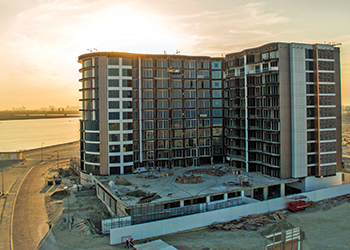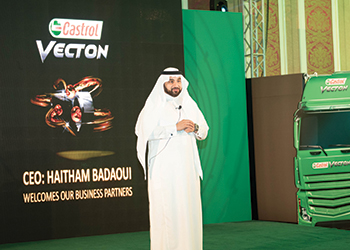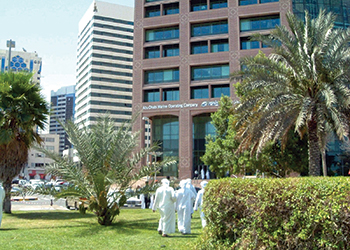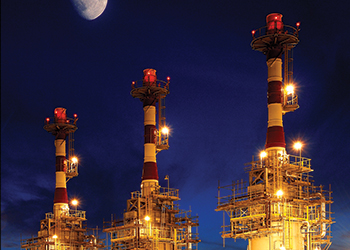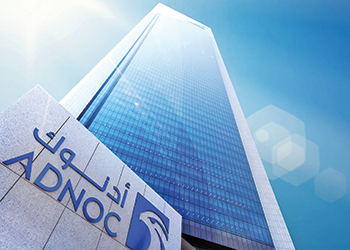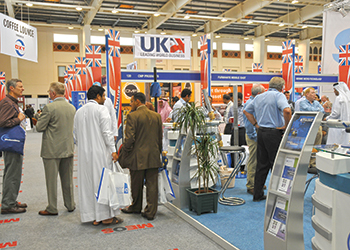
 BP ... winning concession extension
BP ... winning concession extension
With oil majors BP, Total and ExxonMobil now having secured their positions, only 12 per cent of the Adco field (out of the 40 per cent allocated to foreign companies) remains to be allocated, which is anticipated to take place early in 2017
Adnoc, the UAE’s major oil and gas producer, has taken a significant step forward, with the award of a 10 per cent stake in Abu Dhabi’s largest oilfield to BP (UK), an international oil major, in a deal worth $2.4 billion.
This cements the UK firm’s long-term interest in the Abu Dhabi upstream sector, more than two years after the expiry of its previous, 40-year concession agreement signed in the early 1970s. The agreement suggests that the Abu Dhabi authorities are keen to move forward with major oil and non-oil projects despite ongoing caution over the prospects for oil prices.
The deal, which was announced on December 17, means that BP follows Total (France), which secured a stake in 2015, in acquiring a 10 per cent stake in the Abu Dhabi Company for Onshore Oil Operations (Adco) concession, with the renewed concession lasting to 2054.
Although the process of renewing the foreign concessions of the field, which accounts for 1.66 million barrels per day (mbpd), over the past three years has been arduous, the state energy company, the Abu Dhabi National Oil Company (Adnoc), is now showing increased momentum to move ahead with new projects.
The delays between the expiry of the old concession deal (in which BP had 9.5 per cent of the field) had undermined confidence in the management of the UAE’s critical oil sector, with international oil companies (IOCs) regarded as crucial partners on account of their technology and field management skills. These delays reflected organisational changes within the state energy bureaucracy and the Supreme Petroleum Council (SPC), the body that has the final say on the Adco terms, which have now been largely rolled out.
With oil majors BP, Total and ExxonMobil (US) now having secured their positions, only 12 per cent of the Adco field (out of the 40 per cent allocated to foreign companies) remains to be allocated, which is anticipated to take place early in 2017. The Adnoc is expected to seek Chinese investment, with China National Petroleum Corporation (CNPC) among those tipped as a possible investor in the Adco.
The concession renewal process was stymied by the decline in oil prices, which called into question the commercial basis of the oilfield concessions. Oil companies believed that the lower price climate had eroded the attractiveness of the fields, which was reflected in the investment terms.
BP paid slightly more, at $2.4 billion, than did Total in 2015 ($2.2 billion), as oil markets have picked up slightly, although prices still remain well below their 2014 peak. Although the fiscal terms of the new deal are confidential, the recent firming of global oil prices above $50/b may have motivated both parties to accelerate efforts to complete the deal. In early November senior BP executives had visited Abu Dhabi, holding talks with Adnoc officials at the Abu Dhabi International Petroleum Exhibition and Conference (Adipec).
Average compensation to the overseas concessionaires has been estimated at about $2/b. Although this is low in historical terms, the Adco fields are regarded as conventional onshore fields, with low-cost characteristics. The fields are known quantities and could provide for long-term organic growth for the concession holders.
BP’s chief executive, Bob Dudley, noted in comments on December 17 that the agreement would provide BP with 'long-term access to significant and competitive resources that we already understand very well'. It is expected that performance incentives could yield the foreign companies higher returns than the $2/b fee.
As part of the deal, BP will become the manager of the Bab asset group, one of the six main oilfields that comprise the Adco concession, which has total resources of around 20 billion-30 billion barrels oil equivalent. Another feature of the deal is that BP will pay for the stake by issuing shares equivalent to 2 per cent of its issued share capital, to be held on behalf of the Abu Dhabi government.
This may yet prove the most significant element of the deal, bringing in the Abu Dhabi government as a shareholder in BP. This portends a much closer working relationship than had previously been the case with the Abu Dhabi authorities’ most powerful corporate body, the Mubadala Development Company, holding the stock.
For the UAE’s oil and gas sector, the BP breakthrough is significant in granting the Adnoc access to BP’s technology and management experience to help tap substantial infield resources. One reason that Abu Dhabi has held out for IOCs to participate is that it aims to substantially increase oilfield recovery rates to as high as 70 per cent.
With the likes of BP and Total on board, it has the technology and experience it needs to get more out of its onshore oilfields.
The progress in firming up the Adco concessions follows other recent signs that are suggestive of faster project impetus in Abu Dhabi.
In early November the SPC gave the go-ahead to the Adnoc’s five-year business plan, involving a 400,000 bpd increase in production activity, along with midstream and downstream expansions.
Having BP back on board-and Mubadala’s newly-acquired small equity interest in BP-may go some way to restoring confidence in the country’s hydrocarbons future after a protracted concession renewal process that at one stage appeared to suggest that both the IOCs and the Adnoc were losing intere BP extends oil concession interest in Abu Dhabi
With oil majors BP, Total and ExxonMobil now having secured their positions, only 12 per cent of the Adco field (out of the 40 per cent allocated to foreign companies) remains to be allocated, which is anticipated to take place early in 2017
dnoc, the UAE’s major oil and gas producer, has taken a significant step forward, with the award of a 10 per cent stake in Abu Dhabi’s largest oilfield to BP (UK), an international oil major, in a deal worth $2.4 billion.
This cements the UK firm’s long-term interest in the Abu Dhabi upstream sector, more than two years after the expiry of its previous, 40-year concession agreement signed in the early 1970s. The agreement suggests that the Abu Dhabi authorities are keen to move forward with major oil and non-oil projects despite ongoing caution over the prospects for oil prices.
The deal, which was announced on December 17, means that BP follows Total (France), which secured a stake in 2015, in acquiring a 10 per cent stake in the Abu Dhabi Company for Onshore Oil Operations (Adco) concession, with the renewed concession lasting to 2054.
Although the process of renewing the foreign concessions of the field, which accounts for 1.66 million barrels per day (mbpd), over the past three years has been arduous, the state energy company, the Abu Dhabi National Oil Company (Adnoc), is now showing increased momentum to move ahead with new projects.
The delays between the expiry of the old concession deal (in which BP had 9.5 per cent of the field) had undermined confidence in the management of the UAE’s critical oil sector, with international oil companies (IOCs) regarded as crucial partners on account of their technology and field management skills. These delays reflected organisational changes within the state energy bureaucracy and the Supreme Petroleum Council (SPC), the body that has the final say on the Adco terms, which have now been largely rolled out.
With oil majors BP, Total and ExxonMobil (US) now having secured their positions, only 12 per cent of the Adco field (out of the 40 per cent allocated to foreign companies) remains to be allocated, which is anticipated to take place early in 2017. The Adnoc is expected to seek Chinese investment, with China National Petroleum Corporation (CNPC) among those tipped as a possible investor in the Adco.
The concession renewal process was stymied by the decline in oil prices, which called into question the commercial basis of the oilfield concessions. Oil companies believed that the lower price climate had eroded the attractiveness of the fields, which was reflected in the investment terms.
BP paid slightly more, at $2.4 billion, than did Total in 2015 ($2.2 billion), as oil markets have picked up slightly, although prices still remain well below their 2014 peak. Although the fiscal terms of the new deal are confidential, the recent firming of global oil prices above $50/b may have motivated both parties to accelerate efforts to complete the deal. In early November senior BP executives had visited Abu Dhabi, holding talks with Adnoc officials at the Abu Dhabi International Petroleum Exhibition and Conference (Adipec).
Average compensation to the overseas concessionaires has been estimated at about $2/b. Although this is low in historical terms, the Adco fields are regarded as conventional onshore fields, with low-cost characteristics. The fields are known quantities and could provide for long-term organic growth for the concession holders.
BP’s chief executive, Bob Dudley, noted in comments on December 17 that the agreement would provide BP with 'long-term access to significant and competitive resources that we already understand very well'. It is expected that performance incentives could yield the foreign companies higher returns than the $2/b fee.
As part of the deal, BP will become the manager of the Bab asset group, one of the six main oilfields that comprise the Adco concession, which has total resources of around 20 billion-30 billion barrels oil equivalent. Another feature of the deal is that BP will pay for the stake by issuing shares equivalent to 2 per cent of its issued share capital, to be held on behalf of the Abu Dhabi government.
This may yet prove the most significant element of the deal, bringing in the Abu Dhabi government as a shareholder in BP. This portends a much closer working relationship than had previously been the case with the Abu Dhabi authorities’ most powerful corporate body, the Mubadala Development Company, holding the stock.
For the UAE’s oil and gas sector, the BP breakthrough is significant in granting the Adnoc access to BP’s technology and management experience to help tap substantial infield resources. One reason that Abu Dhabi has held out for IOCs to participate is that it aims to substantially increase oilfield recovery rates to as high as 70 per cent.
With the likes of BP and Total on board, it has the technology and experience it needs to get more out of its onshore oilfields.
The progress in firming up the Adco concessions follows other recent signs that are suggestive of faster project impetus in Abu Dhabi.
In early November the SPC gave the go-ahead to the Adnoc’s five-year business plan, involving a 400,000 bpd increase in production activity, along with midstream and downstream expansions.
Having BP back on board-and Mubadala’s newly-acquired small equity interest in BP-may go some way to restoring confidence in the country’s hydrocarbons future after a protracted concession renewal process that at one stage appeared to suggest that both the IOCs and the Adnoc were losing interest.



































































